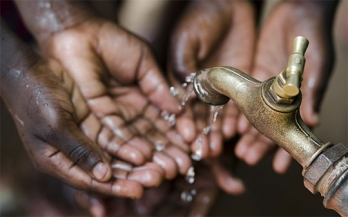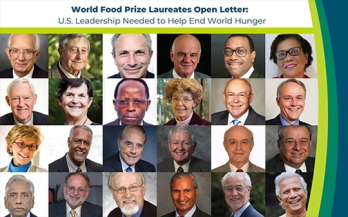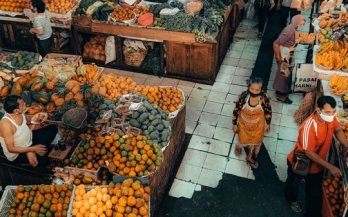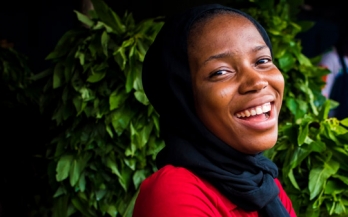Dubbed a "Peoples Summit", it is open to unprecedented engagement in every country, from every sector, and every constituency. It is also dubbed a "Solutions Summit" with a focus on action. I lead one of the five thematic areas or "Action Tracks" (ATs) on "Ensuring access to safe and nutritious foods for all". There are four other ATs, a Science Group, a Champions Group, 4 cross-cutting Levers and the over 100 Summit Dialogues to date.
In the nine countries where GAIN works, lockdowns and border closures to mitigate the spread of the virus and the concurrent economic impact could greatly increase hunger. In some places, restrictions in movements and lay-offs would mean reduced accessibility to fresh produce and nutrient-rich animal-sourced foods, resulting in millions of people having to resort to less nutritious foods.
In late February, twenty-four World Food Prize Laureates penned a letter asking the Biden Administration for help. These internationally recognized and exceptional Laureates are known to have advanced the quantity, quality, availability of, or access to food through creative interventions within the food system.
Unsafe food and malnutrition can be twin threats to consumer health and create hurdles to achieving food security for consumers. Yet addressing these twin threats is vital to meet the United Nations’ Sustainable Development Goal 2, a bold call to end hunger and all forms of malnutrition by 2030.
Water is often described as a precious commodity, but it is so much more than that. It enables and sustains life. In households, schools and workplaces. Water can mean health, hygiene, dignity and productivity. In cultural, religious and spiritual places, water can mean a connection with creation, community and oneself. In natural spaces, water can mean peace, harmony and preservation.
Until every child in the world goes to bed nourished properly, we cannot rest. Our food systems are moving us in the wrong directions: hunger levels are rising, undernutrition levels are at severe risk of rising, obesity is increasing, we are off track to meet climate targets, biodiversity is being squandered, not enough decent jobs are being created and community resilience is being undermined.
Food systems are notoriously complex. Many actors are involved, from subsistence farmers through to multinational corporations with more economic power than many small nations, and from informal ambulant vendors through supranational bureaucracies.
I love academic papers that use evidence to try and shift stubborn policy perspectives, especially when those policy perspectives seem to be holding back development and hunger reduction. So, it is no surprise that I like the recent paper by Liverpool-Tasie et al. (2020) on persistent myths that are held about African food supply chains.
The calendar is about to turn the page over to a new year and that new year brings hope for a world currently gripped by a pandemic that has wreaked havoc for months. COVID-19 has made 2020 the year we wish we could forget but never will. With the roll-out of
vaccines, the end of the pandemic and its related global disruptions seem to be in sight. But not everyone will be able to breathe a sigh of relief.
As we draw to the end of 2020, COVID-19 rages on; hunger numbers are on the increase; and we are not on track to meet the 1.5C Paris target to limit global warming. According to the Johns Hopkins COVID-19 Dashboard, 72 million people have been infected with the novel coronavirus and 1.7 million have died. And counting. According to the IMF, the measures taken to combat the virus have led to GDP declines of around 4-10%, depending on the country.










